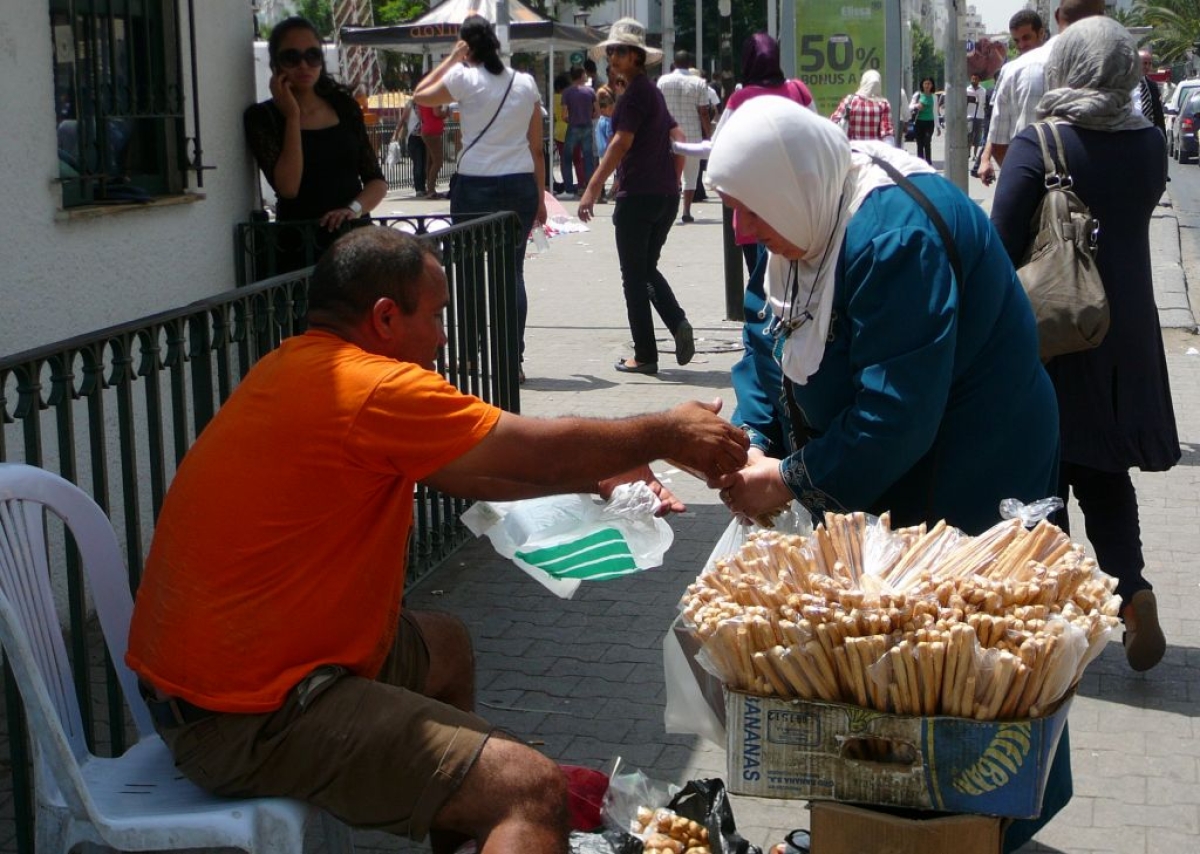Tunesien: Nahrungsmittel und Benzin werden knapp

Straßenszene in Tunis, Bild: Thomas v. der Osten-Sacken
Nicht nur die politische Lage auch die ökonomische verschlechtert sich in Tunesien von Tag zu Tag mehr.
Nun droht, dass dem Land das Benzin ausgehen könnte:
Tunisia only has enough petrol to last a week, a senior official in the Labour Union said on Monday, but the Energy Minister said a new tanker was unloading and that big queues at fuel stations had been caused by a rush of consumers hoarding supply, Reuters reports.
Long lines of cars have jammed roads as they wait to fill their tanks around Tunis over recent days, in what critics of the government see as another sign of an unfolding crisis in public finances.
The petrol tanker now unloading at Bizerte will give Tunisia an extra few days of supply, taking it to 10-14 days in total, down from the usual 60 days of strategic reserves, said Salouan Smiri, a senior official in the oil section of the UGTT Union.
Und Lebensmittel verteuern sich nicht nur, sie werden langsam sogar knapp:
Tunisians have been hit with soaring food prices and shortages of basic staples in recent weeks, threatening to turn simmering discontent in the North African country - the cradle of the Arab Spring protests - into larger turmoil.
Sugar, vegetable oil, rice and even bottled water periodically disappear from supermarkets and grocery stores.
People stand in line for hours for these food essentials that have long been subsidized and are now increasingly available in rations only.
And when they appear on the shelves, many people cannot afford to pay the staggering price for them.
The government has blamed speculators, black market hoarders and the war in Ukraine, but economic experts say the government's own budget crisis, and its inability to negotiate a long-sought loan from the International Monetary Fund, have added to Tunisia's troubles.
Fights sometimes break out at food market queues, and scattered protests and sporadic clashes with police over rising prices and shortages have occurred around the country.
In a suburb of the capital, Tunis, a young itinerant fruit vendor recently killed himself after police seized the scales he used to weigh his wares.
His act of desperation revived memories of the 2010 self-immolation of another Tunisian vendor, Mohamed Bouazizi, which prompted protests that led to the ouster of long-time dictator Zine El Abidine Ben Ali, and provoked similar uprisings around the Arab world.
"I came to shop and found people fighting to buy and the prices were very high," said shopper Amina Hamdi, despairing at trying to buy basic goods.
"It is not possible to live without food," said Aicha during a recent shopping trip to the fish and meat market in Tunis. "We can live without furniture, construction material, but we have to eat." She only gave her first name for fear of persecution by police for speaking out.